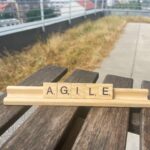Artificial Intelligence (AI) is not just a buzzword; it is a transformative force that is revolutionizing how industries operate. As AI becomes more sophisticated, it is reshaping jobs, creating new opportunities, and redefining what it means to work in the 21st century. This article explores how AI is automating routine tasks, transforming roles, and opening doors to innovative career paths.
Automation: Streamlining Processes
One of AI’s most significant impacts is the automation of repetitive and mundane tasks. In manufacturing, robots powered by AI handle assembly lines with precision and speed, reducing human error. In finance, AI algorithms process vast amounts of data to identify fraudulent activities or optimize investment portfolios in real time. Similarly, customer service is being transformed by AI chatbots that handle queries 24/7, freeing up human agents for more complex interactions.
This automation doesn’t mean the end of human jobs but rather a shift in focus. While machines take over repetitive tasks, humans are now tasked with overseeing these systems, ensuring quality control, and stepping in when decision-making requires empathy or nuanced judgment.
Job Transformation Across Industries
AI is not eliminating jobs; it is transforming them. For instance, in the healthcare industry, AI-powered tools assist doctors in diagnosing diseases through advanced imaging analysis, allowing healthcare professionals to focus more on patient care. Similarly, in retail, AI analyzes consumer behavior, enabling personalized shopping experiences and inventory optimization.
In creative fields, AI generates music, designs, and even written content. However, it doesn’t replace creativity but enhances it. Artists and writers can use AI tools to brainstorm ideas, automate repetitive parts of their work, and experiment with new styles.
Education is another sector experiencing transformation. AI-powered platforms provide personalized learning experiences, adapting to the pace and style of each student. Teachers, instead of being replaced, are becoming facilitators and mentors, focusing on guiding students rather than delivering standardized lectures.
Emerging Opportunities
As AI reshapes industries, it also creates new job opportunities. Roles such as AI specialists, data scientists, machine learning engineers, and robotics experts are in high demand. These positions require specialized skills but also promise lucrative and fulfilling careers.
Moreover, entirely new industries are emerging thanks to AI advancements. Autonomous vehicles, for instance, have given rise to roles in vehicle programming, maintenance, and ethical decision-making in AI systems. The rise of AI-driven platforms has also spurred demand for digital ethicists who ensure these systems operate fairly and transparently.
Entrepreneurship is thriving as AI lowers barriers to entry for small businesses. Startups leverage AI tools for market research, product development, and customer engagement, allowing them to compete with larger enterprises.
Adapting to the AI-Driven Future
The integration of AI into workplaces underscores the importance of adaptability. Continuous learning and upskilling are no longer optional—they are essential. Governments, educational institutions, and organizations must collaborate to provide training programs that prepare workers for AI-driven roles.
The future of work is not about humans versus machines; it’s about collaboration. AI augments human capabilities, allowing people to focus on creativity, strategy, and interpersonal skills. By embracing these changes and investing in education and innovation, society can ensure that AI leads to a future of enhanced productivity and opportunities for all.
In conclusion, AI is not just reshaping jobs; it is redefining the way we work and live. From automation to job transformation and the creation of new industries, AI holds immense potential to drive progress across sectors. The key lies in adapting to these changes and harnessing AI as a tool for human advancement. The future of work is here, and it’s powered by AI.
Image: Buyed License from Fotolia – 2018



